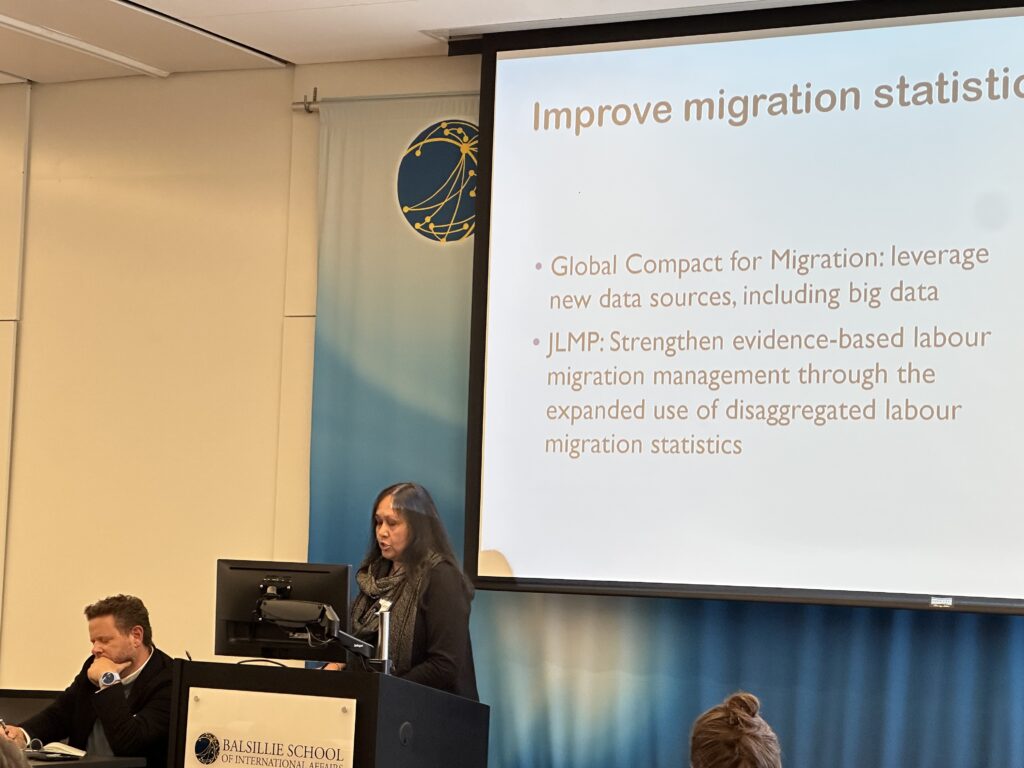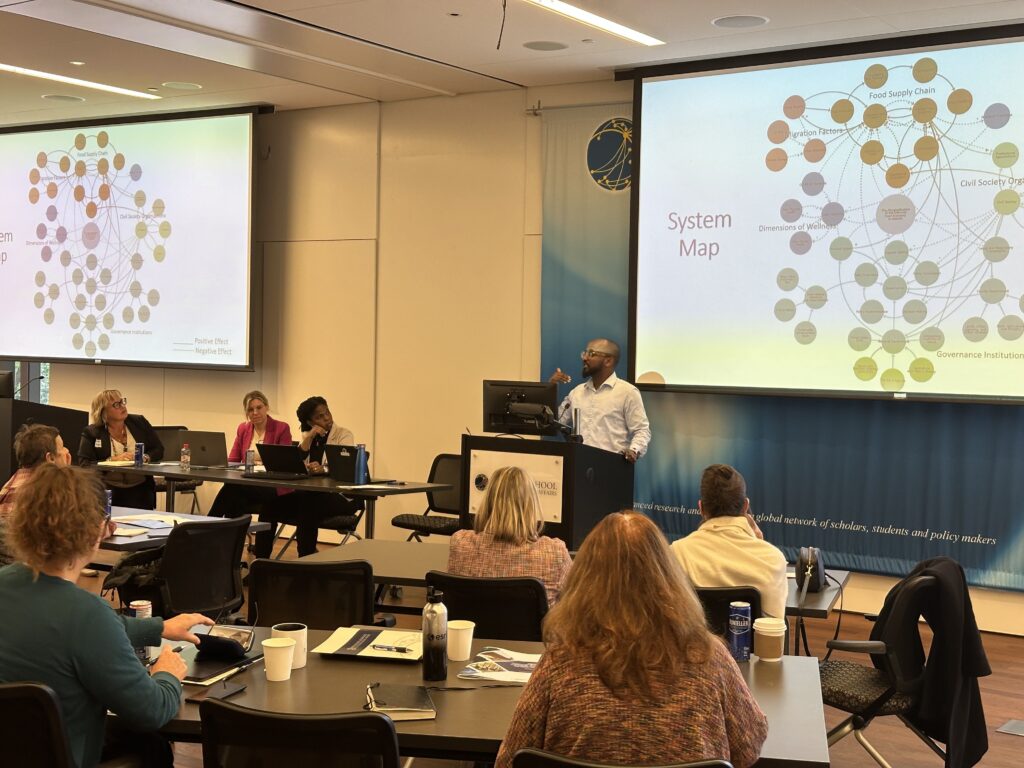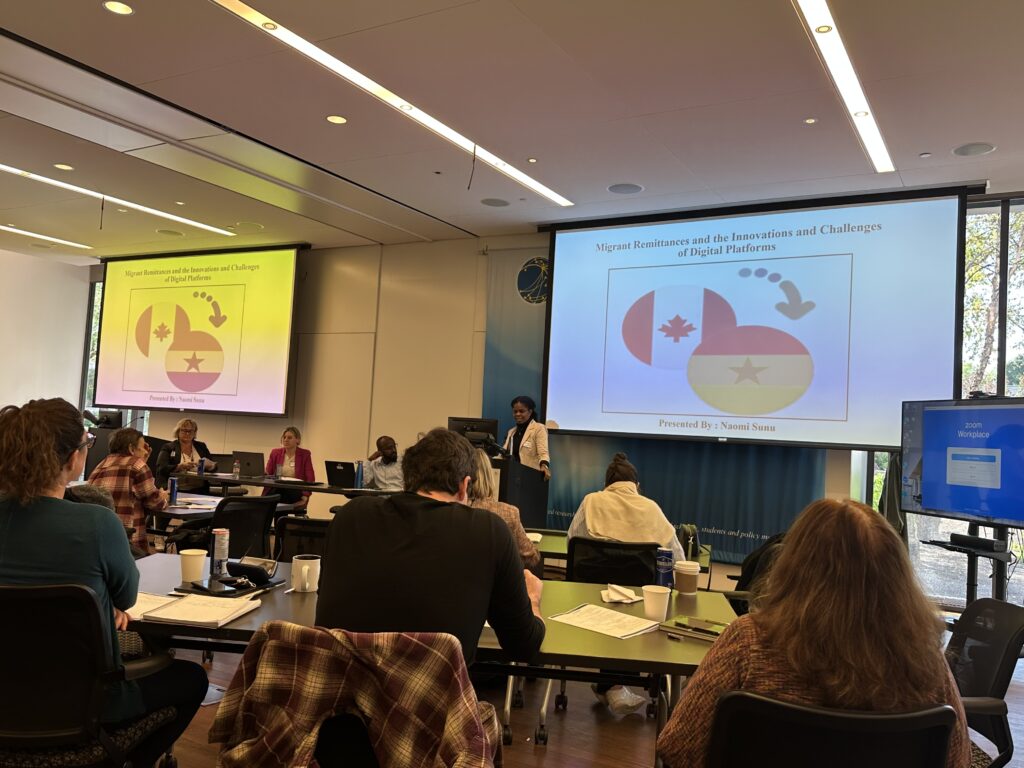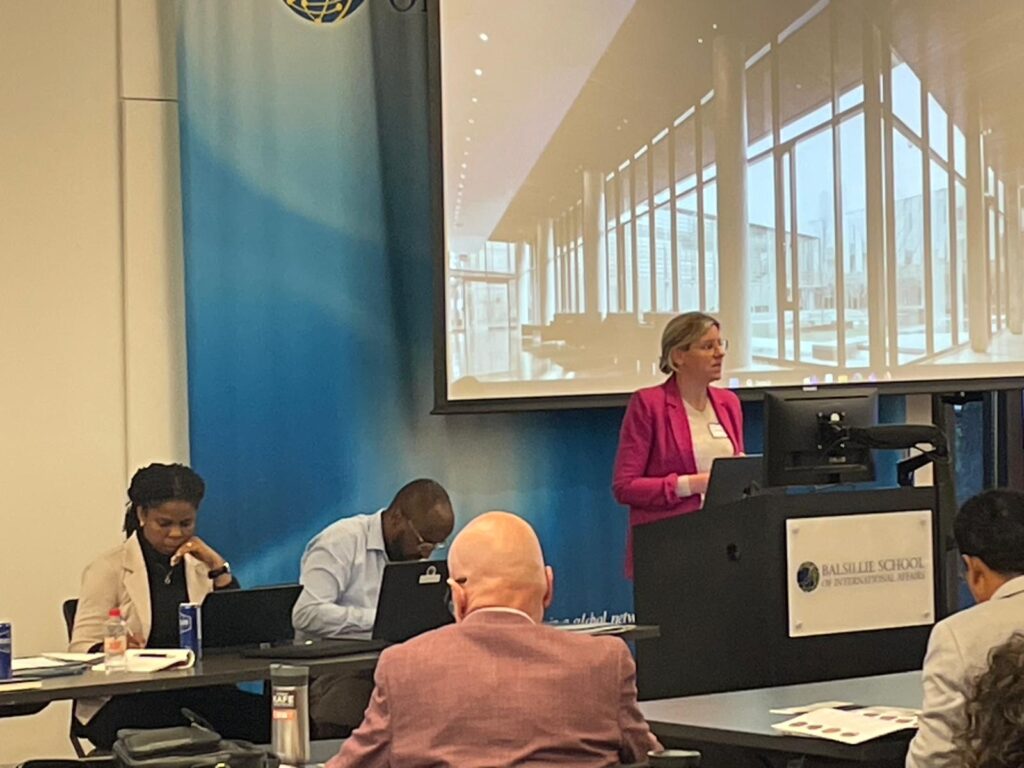On October 8, 2024, several members of the MiFOOD Network participated in the Migration and Technology: Governance Innovation, Challenges and Future Directions that Leave No One Behind workshop at the Balsillie School of International Affairs. The International Migration Research Centre (IMRC), the MiFOOD Network, and the Balsillie School of International Affairs (BSIA) organized this workshop, in collaboration with the newly launched Migration+Technology Hub and the BSIA-UWC Centre of Excellence in Migration Technology and Governance. Workshop participants examined the linkages between migration and technology and explored how different forms of technological changes are reshaping migration flows and migration governance.
MiFOOD postdoctoral fellow Sean Sithole from University of the Western Cape presented the most recent studies on the use of various digital technologies and social media among migrants in South Africa. He highlighted the role of digital technologies and social media in facilitating remittance transmissions and information pathways and boosting migrants’ socio-economic activities and called for more research in this area.
MiFOOD partner Leah Koskimaki from University of the Western Cape spoke on the issue of digital coloniality and pointed out that African people got excluded from international policy debates, perceived as less developed in adoption of digital technology. She emphasized that transformative collaboration is the way forward.
MiFOOD team member Zack Ahmed discussed the use of technology in informal food economies in the context of eastern Africa. He pointed out that both policy makers and civil society actors have a formal and rural bias when tackling the issue of food insecurity.
MiFOOD postdoctoral fellow Naomi Sunu examined the proliferation of digital financial and Fintech technologies, like mobile money and web-based platforms, and their impacts on remittance transfers between migrant destination and sending countries. Using the case study of Ghanaian migrants in Canada, she highlighted how migrants navigate existing remitting challenges by leveraging these new digital platforms.
MiFOOD project manager Sujata Ramachandran explored the ways digital technologies have transformed administrative data on migration in South Africa and assessed how big data can complement existing migration data sources. Identifying the new challenges and barriers associated with these technological shifts, she argued that the increased adoption of digital technologies does not always generate a marked growth in released migration data.
The workshop program is available here.




